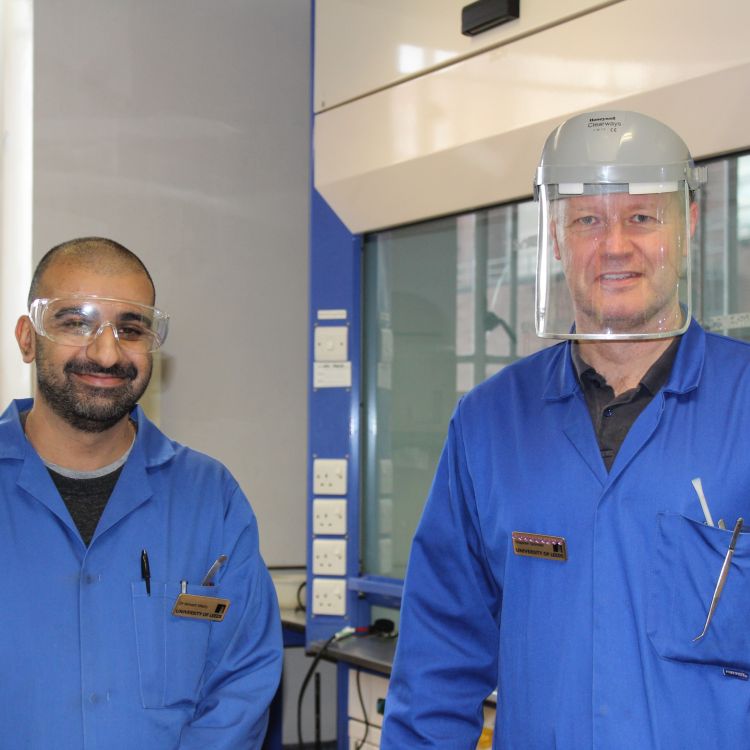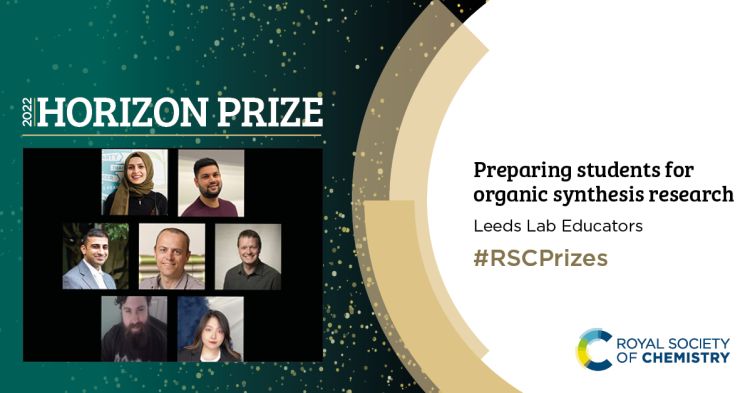Teaching style a recipe for success for award-winning chemistry academics

Academics in the School of Chemistry have been awarded a Horizons in Education prize by the Royal Society of Chemistry for an approach to teaching that helps students ‘think more like scientists’.
Their approach has now been referenced at academic conferences and is being emulated at other universities in the UK and US.
Instead of focusing strictly on methods and recipes, students are supported to develop their own procedures and experiments, enabling them to think about how molecules and substances are created.
Dr Nimesh Mistry, principal teaching fellow, and Dr Stephen Gorman, senior teaching fellow for practical chemistry, are two of the team of academics and postgraduates recognised.
Dr Mistry said: “It was really exciting to see the experiments and workshops working by getting students to 'think like scientists' and applying their knowledge of organic chemistry in the way a researcher would do.”
Knowledge learnt in lectures is applied in the laboratory, with students able to shape the different factors that affect how substances such as paracetamol form. This marked a change to the traditional approach of students copying methods in a similar fashion to following a recipe in a cookbook.
Whilst not strictly a process of trial and error, it allows students to make mistakes whilst in the labs, correct them and learn from what they have done.
Taking students out of their comfort zones
Initially, the prospect of designing their own experiments can be daunting for some new students.
Dr Gorman said: “To begin with, it takes the students out of their comfort zone because they’re not used to working like this.
“They’ve probably come from A-level where everything is a cookbook, expository approach. Here, we start off with elements of that approach but then as we move through the levels, we introduce our approach.
“At the end of it, we are seeing better students able to work to a better level, a level we as scientists would want to see as they leave us.”
Inside the school, the nature of the teaching style has drawn more than a passing comparison to challenges on The Great British Bake Off – as recipes get increasingly sparse and students move towards creating their own experiments.
Though, as Dr Mistry pointed out: “We don’t make our students eat anything at the end!”

Shaping the conversation
This approach has also had a practical impact in the world of chemistry. Early participants, under the guidance of Dr Richard Foster, were able to take part in experiments that contributed to the designing of a new inhibitor to lower blood clots.
Dr Mistry said they wanted to shape the conversation around how chemistry is taught. He added: “Do you want them to be following recipes all the time or do you want them to have higher order thinking?”
Find out more about studying Chemistry at the University of Leeds.




